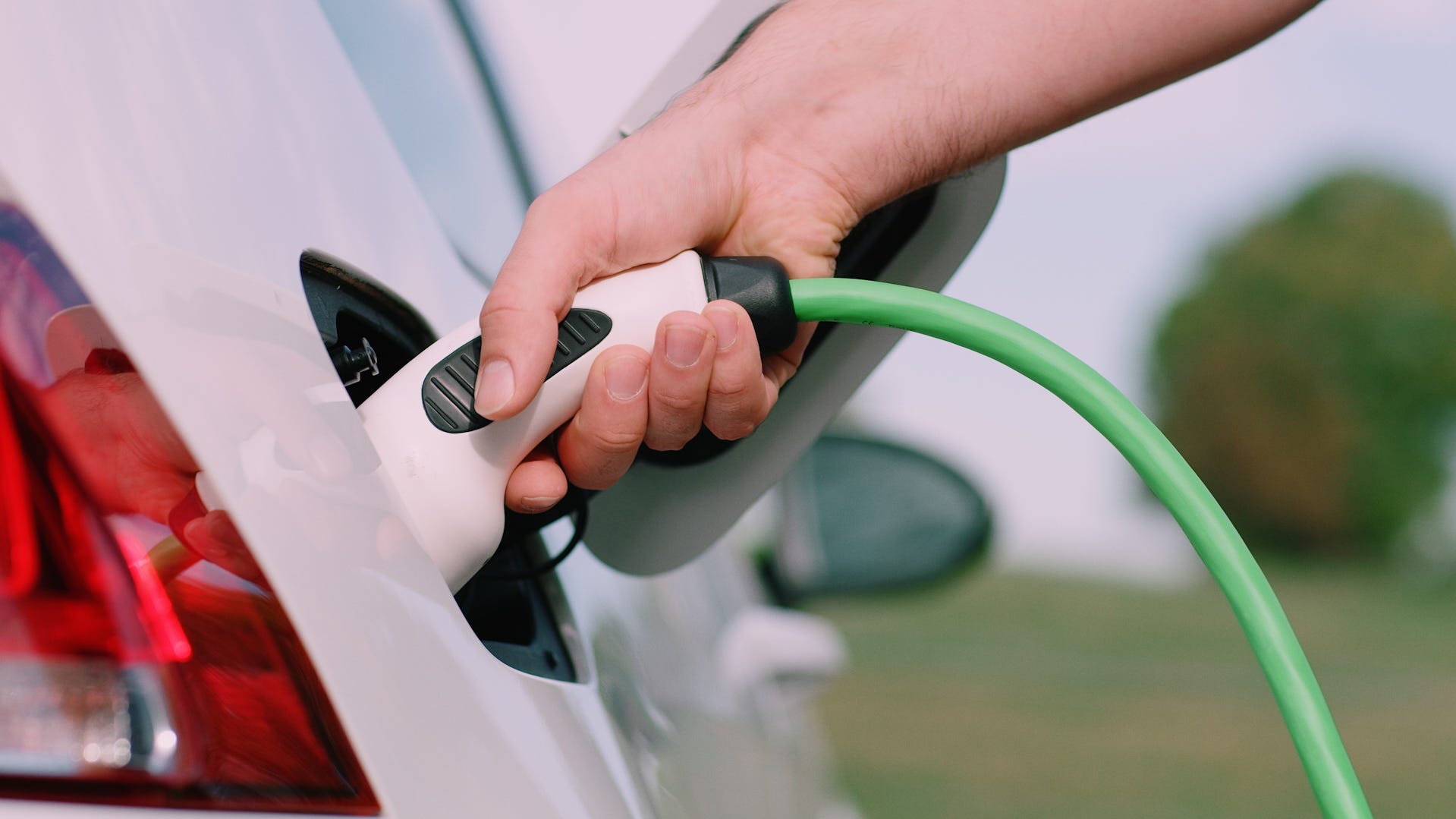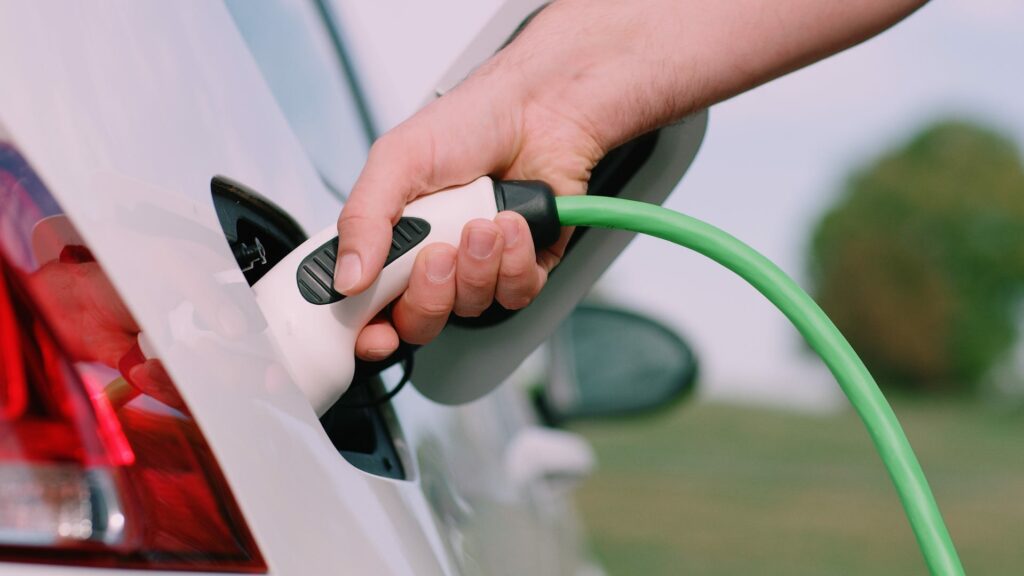
What to know about Kentucky’s booming EV industry
Kentucky is taking the lead in the electric vehicle industry, bringing thousands of new jobs to the state.
In Kentucky, a state seeing historic investments in the electric vehicle industry, consumers have remained among the most hesitant in the country to embrace the technology.
More than 10,000 light-duty electric vehicles were registered in the state as of late 2023, according to the U.S. Department of Energy, a figure dwarfed by more than three million gas-powered vehicle registrations recorded in 2022.
Industry analysts and dealers told The Courier Journal concerns about electric vehicles’ ability to travel long distances, or “range anxiety,” and reliable access to charging infrastructure is driving consumers’ reluctance about the technology.
“The number one barrier for adoption is access to charging stations, the reliability of it, and so I think having infrastructure just visibly there is going to help from consumers, the optics of it,” said Stephanie Valdez Streaty, an industry insights director at Cox Automotive.
Those concerns have also sparked a “chicken-and-egg” conundrum: In places without charging infrastructure, people aren’t as comfortable buying EVs, and in places with low EV ownership, investment in chargers without existing demand is a gamble.
Even proponents of electric vehicles, who say battery-powered cars are the inevitable direction of the auto industry, aren’t certain of the pace of the transition.
“We know this is where the automotive sector is going, the only question is timing,” Gov. Andy Beshear, a proponent of the EV industry who’s helped drive its investments in the state, told the Courier Journal.
Would you buy an EV? Submit your letter to the editor here.
Experts forecast continued EV adoption
As Kentucky builds out its network of EV charging infrastructure — with the help of public and private funding — experts anticipate EV ownership to grow in tandem. “Kentucky has lagged behind other areas of the country in EV adoption,” according to the state’s charging infrastructure deployment plan.
“However, with the growth of EV and battery manufacturing in the state and the substantial private, local, state, and federal investment in EVs and EV infrastructure, it is expected that adoption in Kentucky will increase and follow the national average in the future.”
Nationally, a record 1.2 million EVs were sold in the U.S. last year, according to estimates from Kelley Blue Book, as sales of EVs crept up to 7.6% of the total national market.
In Kentucky, grassroots efforts to encourage drivers to try out electric vehicles have reached well beyond Louisville.
Travis Stacy, a rural electric cooperative employee near Morehead, drives a diesel pickup truck and was a self-described skeptic of electric vehicles.
He recently participated in the Rural Reimagined program, which allows participants living in Appalachia to borrow an EV, free, for up to six weeks.
“It was a wonderful learning experience, actually. It was better than expected,” Stacy said. “To be able to drive down the road and pass up $3.50 gas prices was very gratifying.”
While he was able to make it work, Stacy still doesn’t see himself getting an EV as his only vehicle anytime soon.
The current absence of charging stations, he said, “kind of keeps me reluctant to pull the trigger on electric vehicles at this time.”
In Campbellsville, Fred Rockhold, an EV advocate and owner, estimates there are maybe three electric vehicle drivers in town.
“I’m an early adopter,” he said, adding, “It’s human nature to resist change.”
To overcome customers’ skepticism, auto dealers and manufacturers will need to learn how to sell EVs as effectively as they’ve sold gas-powered vehicles, Rockhold said.
As EV technology has improved over the last decade, the target audience for the vehicles has broadened widely, if automakers’ marketing is any indicator.
In 2010, an ad for the electric Nissan Leaf featured a polar bear hugging the car’s owner, paired with Robert Downey Jr.’s narration, “Innovation for the planet.”
More recent EV marketing has sought to reach demographics beyond environmentalists. Automakers portray the modern electric vehicle as a powerhouse.
Ford’s F-150 Lightning electric pickup’s battery can serve as a home’s backup power for several days, the company boasts. And its Mach-E, an electric ode to the “spirit of Mustang,” can leap from 0-60 mph in less than 4 seconds.
As billions of dollars are poured into the production of EVs in states like Kentucky, the vehicles are no longer a niche option for the select few. The industry is looking to promote all-electric lineups as offerings for just about everyone.
“Many Americans would find an electric vehicle lowering their cost,” Ford CEO Jim Farley said on a recent earnings call. “Not everyone, but a high percent.”
Kentucky builds out a charging network
The Kentucky Transportation Cabinet has developed a plan for electric vehicle charger deployment across the state, harnessing $70 million in federal funding.
This plan is in progress, targeting the state’s major transportation corridors. It’s been a gradual process, with the state’s first federally funded charger breaking ground in February.
But the expansion of Kentucky’s charging network has not been solely dependent on government funding.
LG&E and KU also has a key role in implementing charging at the local level. The utility has installed at least 20 level 2 charging stations in the state and is planning to add additional locations to offer “direct-to-consumer fast charging services.”
The utility is joined by small business owners like Buddy Wheeler, who installed a charger outside Tattoo Charlie’s, his shop in Okolona.
Advocacy groups have also joined the charging push. Evolve KY has established a network of more than 60 charging locations across Kentuckiana, with support from its Adopt a Charger program.
And Stuart Ungar, executive director of Louisville Sustainability Council, is working to install chargers at Alberta O. Jones Park, in the California neighborhood. Louisville’s south and west ends still have relatively fewer chargers than areas to the east, an accessibility and equity issue Ungar and others aim to address.
EV drivers say charging and range barriers have increasingly faded in recent years, as batteries get better, and chargers continue to pop up around the state.
Many modern electric vehicles boast upward of 300 miles of range. And as battery technology improves, charging times will fall.
Ben Reno-Weber, a Louisville Metro Council member and EV driver, said it’s been “striking” to see the infrastructure built out in Louisville in recent years, but filling remaining gaps will be a key issue for the city.
“The ability of our entire community to access renewable energy and EV infrastructure is going to be one of the big, important issues that we’re just going to take up as a whole community,” Reno-Weber said, “and that’s going to be government and business and nonprofits all together.”
Contact business reporter Olivia Evans at oevans@courier-journal.com or on X at @oliviamevans_. Contact environmental reporter Connor Giffin at cgiffin@gannett.com or on X @byconnorgiffin.
Source link : http://www.bing.com/news/apiclick.aspx?ref=FexRss&aid=&tid=66cd10b88b7945a1979727b85620cb2f&url=https%3A%2F%2Fwww.usatoday.com%2Fstory%2Fnews%2Flocal%2F2024%2F08%2F26%2Fkentucky-ev-adoption-lags-but-beshear-says-only-question-is-timing%2F74097638007%2F&c=9805028966879382082&mkt=en-us
Author :
Publish date : 2024-08-25 23:01:00
Copyright for syndicated content belongs to the linked Source.
